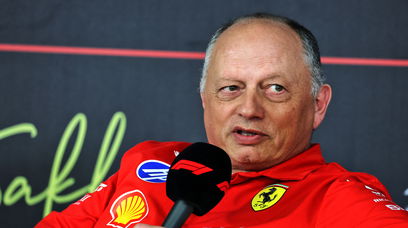Toto Wolff has said that the pace delivered by the Mercedes W13 in Friday practice at the Miami International Autodrome has gone some way towards showing the potential of their package. Mercedes have gone down a very different design route to the rest of the field in 2022, showing up for the second pre-season test with a sidepod-less car. However, it has proven extremely difficult to unlock real-world performance from the concept, in stark contrast to the immense potential it showed in Mercedes' own simulations. Following plenty of homework and a handful of upgrades, the W13 proved to be one of the star performers in Miami on Friday, finishing first and fourth with George Russell and Lewis Hamilton respectively. As a result, it's offered some vindication of the team's direction, according to Wolff.
Wolff sees potential for Mercedes' "sensitive concept"
"We believe that our concept has the potential for us to race at the front," he told media, including RacingNews365.com , after qualifying. "But it is also a sensitive concept. Once it's in the window, it can function very well, but it's very difficult to get it in that window, because of the floor being much more exposed than all the other cars, so we are still believing in that direction and that it's right. "We will have another set of data [on Sunday] and in Barcelona, which will be good for correlation work to the Barcelona test with our launch car." Wolff also downplayed the possibility that Mercedes might eventually opt to turn their back on the concept, having recently said there was a chance the team could choose to "cut their losses". "[There] comes a moment where we have to decide what we are doing for next year," he said. "It doesn't work like in the old days, writing off one season in order to concentrate on the next, because it's the same regulations. "I just think our understanding grows with every day. We've always said this is another experimental weekend. Yesterday was good, today not."
What changed between Friday and Saturday?
Mercedes fell off the pace on Saturday, languishing at the back in third practice before going on to qualify in sixth place with Hamilton and 12th with Russell. Asked to explain what changed overnight, Wolff said some set-up adjustments had taken the car out of the optimal performance window. "[On Friday], we had a glimpse of [the] performance that is in the car if we get into that right spot. The main thing was, again, managing the porpoising," he commented. "That was good [in Friday practice], and then we tried something that didn't seem like a big change and [it] affected the car badly. We went all the way back and, in the end, in qualifying, the drivers suffered again with the bouncing. "It has such an effect on the braking zones, on what the tyres are doing and, as a consequence, [we] ended up sixth and 12th. "The learning is exponential, but exponentially tough at the moment. We would have hoped for better today."
Most read






